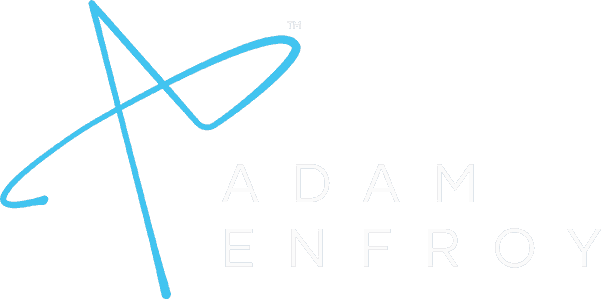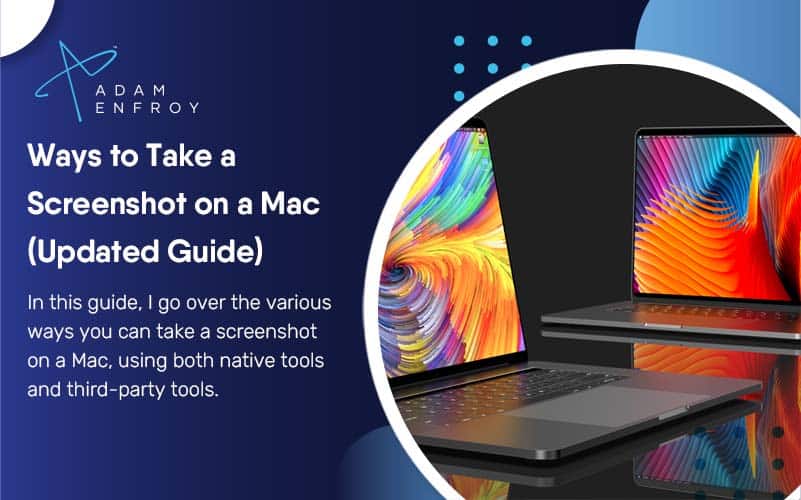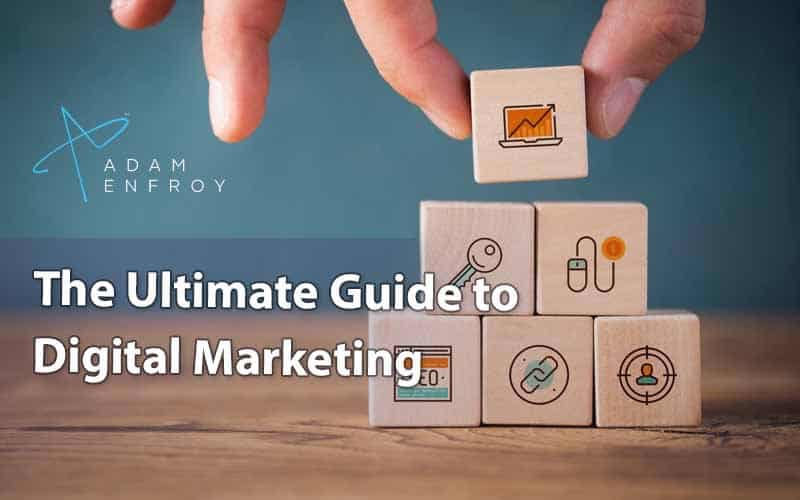Mastering Affiliate Marketing on Facebook (2024)
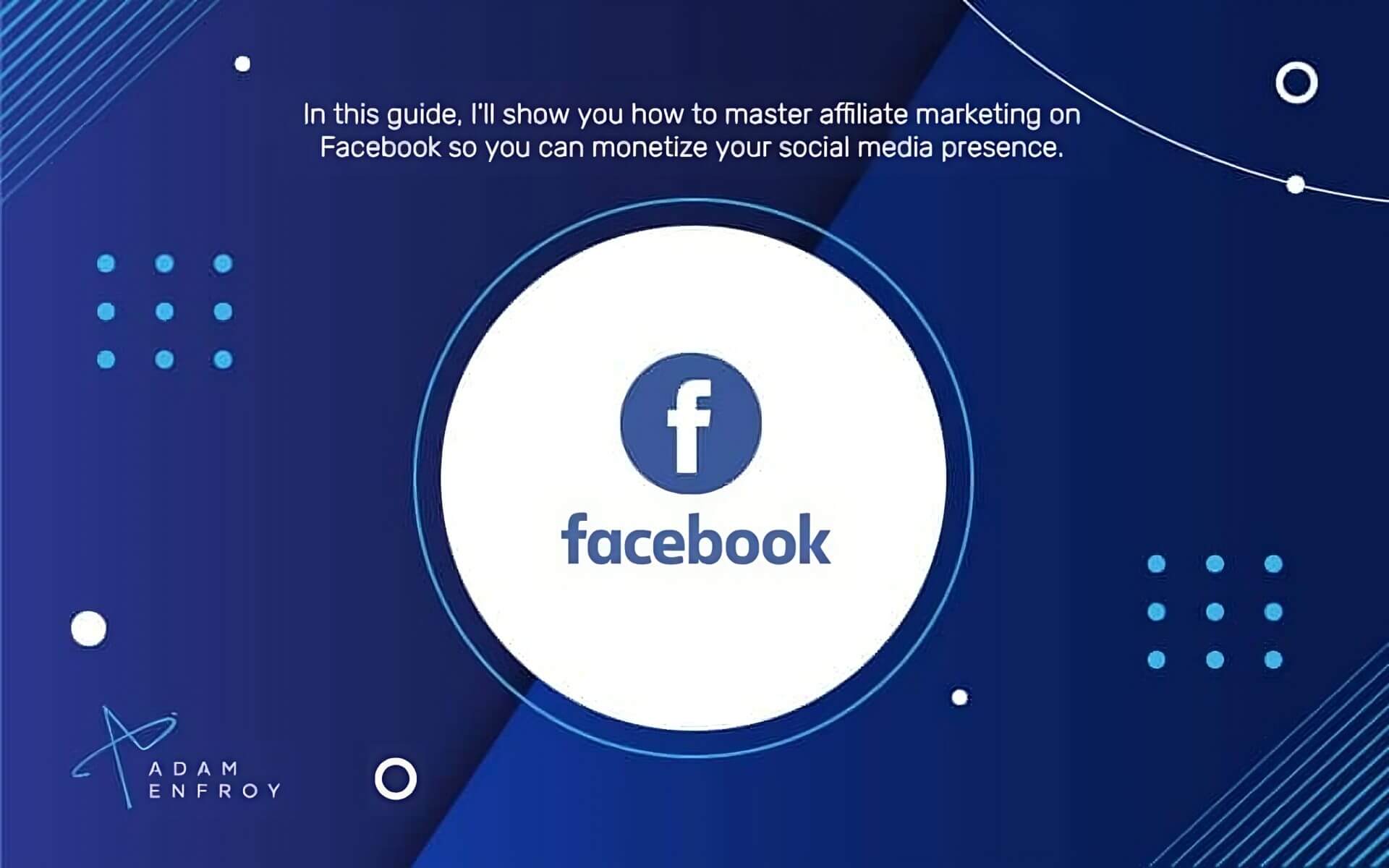
Many folks think Facebook’s just for chats and social shares, not realizing it can also be a money-making machine – if done properly.
You could literally be leaving money on the table if you’re not using Facebook for affiliate marketing yet.
If you ever thought about turning your Facebook account into a business but didn’t know where to start – I’ve written this post specifically for you.
In this guide, I’ll let you in on all the insider info about selling on Facebook through affiliate marketing.
I’ll show you how to:
- Make the most of affiliate marketing on this social platform
- Build out your affiliate funnel
- Use the right branded content posts
- Build trust with your audience
- And much more.
- Making The Most Of Affiliate Marketing On Facebook
- Building Out Your Affiliate Funnel
- Tagging Your Products On Branded Content Posts
- Using Affiliate Disclosures
- Building Trust And Boosting Sales
- Understanding How The Facebook Algorithm Works
- Developing Engaging Affiliate Marketing Content
- Facebook Ads For Affiliate Marketing
- Advanced Strategies For Affiliate Marketing
- Pros And Cons Of Facebook Affiliate Marketing
- Wrap Up.
Making The Most Of Affiliate Marketing On Facebook
Let’s go over the steps you need to take to get started with affiliate marketing on Facebook and how to boost your page.
Get A Facebook Page
If you don’t already have a Facebook business page, it’s time to create one.
Go to Facebook.com/pages/create and choose a category for your business.
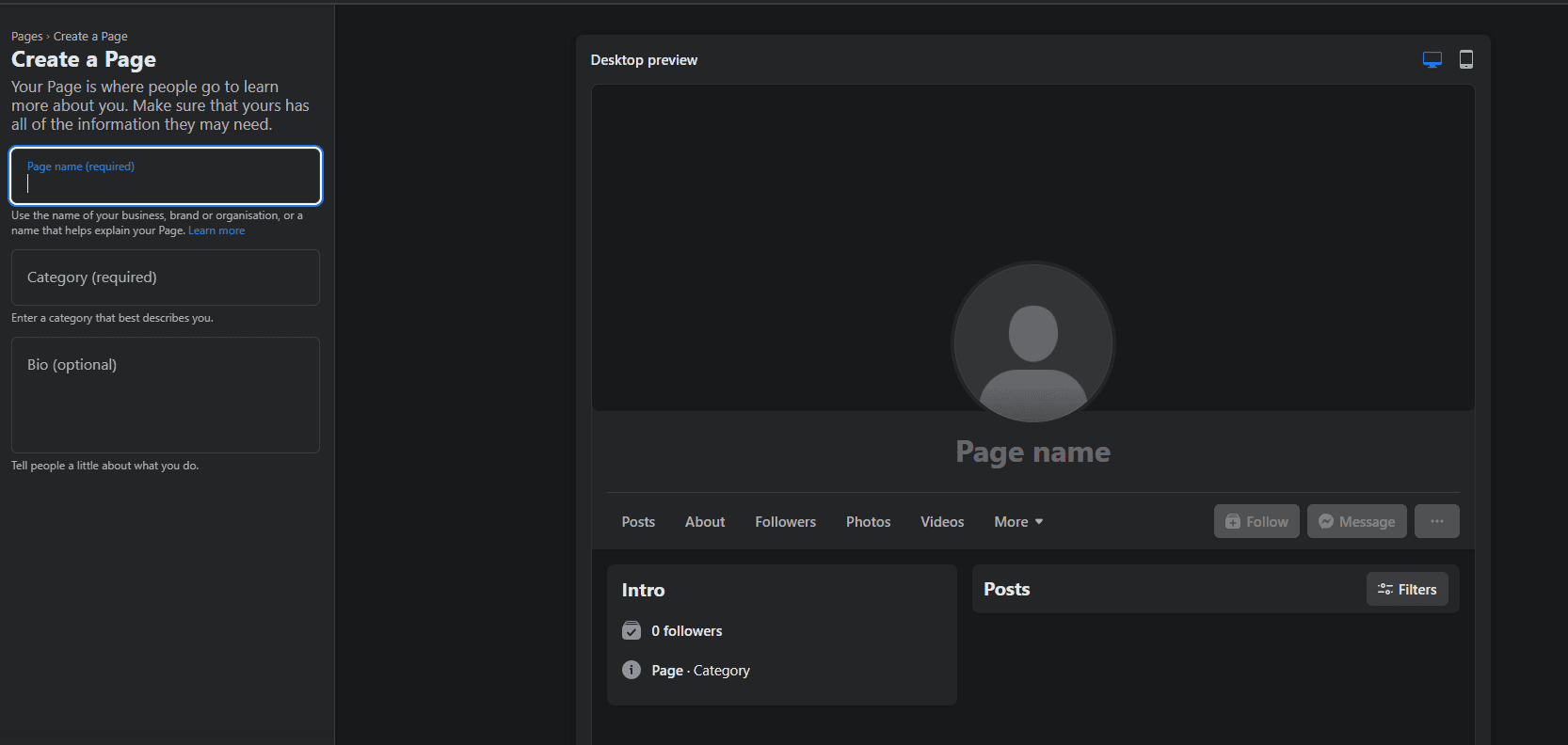
Fill in all the details, including your business logo and cover photo.
Once you have your page ready, post content to attract followers.
Find Affiliate Programs
Once your page is running, find affiliate programs matching your niche.
Many websites and platforms offer affiliate marketing programs.
Some of the most popular ones are Amazon Associates, ShareASale, Commission Junction, and ClickBank.
Choose programs that align with your business and that you would feel comfortable promoting.
Share Your Affiliate Link With Your Followers
Now that you have joined an affiliate program with links to promote, you must share them with your followers.
To do this, you can create a post on your page or add links to your website.
However, make sure that your posts are not too spammy and that you offer value to your audience.
Share valuable and relevant content with your followers, including your affiliate links.
Build Trust With Your “About” Section
Your “about” section is a crucial part of your Facebook page.
Here, you can tell your audience about your business, your values, and what differentiates you from your competitors.
Include personal information about yourself and how you started your business.
You can connect with your audience and build trust by sharing your story.
Also, include social proof like customer testimonials or awards you have won.
Join Facebook Groups
Facebook Groups offer an excellent opportunity to build an engaged community around your business.
Join niche groups that align with your business and start participating in the discussions in this Facebook group.
Offer valuable insights and help other members out.
Also, it’s a great way to network and collaborate with other businesses or influencers.
Measure Your Results
After you have implemented the above steps, track and measure your results.
Facebook Insights is an excellent tool for tracking performance metrics such as engagement rate, reach, and clicks.
Also, check out other analytics tools like Google Analytics or Hotjar to see how your audience interacts with your website.
This data can help you make informed decisions about the content you create and what works best for your audience.
Building Out Your Affiliate Funnel
Research the products you intend to promote on Facebook before directing people to your website.
Ensure they’re relevant and appealing to your target audience.
Use popular affiliate marketing networks like Amazon Associates, ShareASale, and Commission Junction to find products that fit your niche.
From high ticket affiliate products to smaller items, strive to build an affiliate funnel that offers something for everyone.
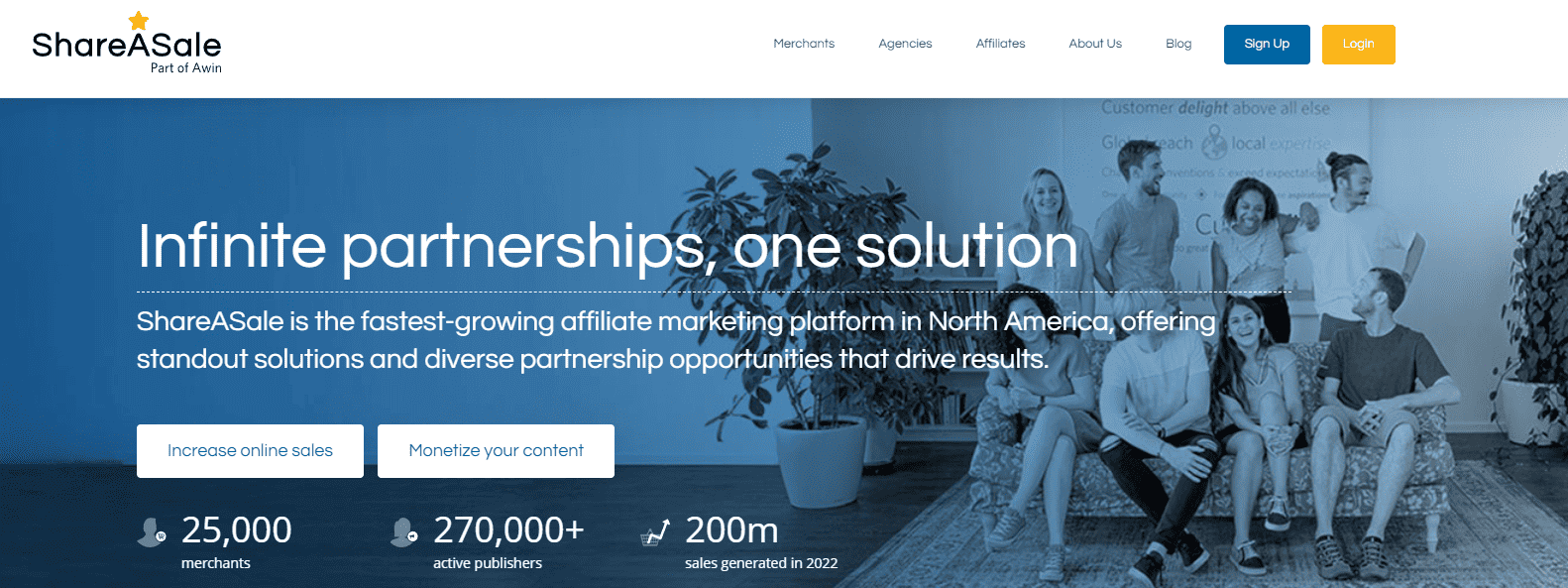
You could also do a quick Google search for popular affiliate marketing programs in your niche.
Look for products and programs with a high commission rate and good reviews to increase the likelihood of successful sales.
Your website’s domain name and hosting provider are the foundation of your online presence.
Choose a memorable, relevant domain name that’s easy to remember and reflects your niche.
For instance, if you’re promoting fitness apparel, choose a domain name with keywords like “fitness” or “activewear.”
Hosting providers like Bluehost or HostGator offer affordable hosting plans with easy WordPress installation.
WordPress is a popular, user-friendly platform for creating websites.
Once you’ve chosen a domain name and hosting provider, install WordPress and select a theme that reflects your niche.
Use a page builder like Elementor or Divi to create a dynamic, visually appealing website with engaging content and product reviews.
Make sure your website is mobile-friendly and easy to navigate.
WordPress offers various plugins that can enhance your website’s functionality and SEO.
Install plugins like Yoast SEO to optimize your content for search engines.
Similarly, install Pretty Links to shorten and track your affiliate links and Jetpack to enhance your site’s performance and security.
Take the time to configure each plugin to ensure you optimize them appropriately for your website and niche.
The key to successful affiliate marketing is to create content that engages your audience and promotes your products in a genuine, relatable way.
Focus on creating honest and informative product reviews, highlighting each product’s benefits and unique features.
Use high-quality images and videos to enhance your reviews and make them more engaging.
Share your personal experiences with the products to build trust with your audience.
Once you’ve created engaging content and product reviews, it’s time to promote your website and affiliate links across various platforms.
Facebook is a great platform to connect with potential buyers, but don’t limit yourself to just one platform.
Use social media like Instagram, Pinterest, and Twitter to connect with your audience and drive traffic to your website.
Use paid ads to target specific audiences and increase your reach.
Finally, monitor and optimize your traffic and earnings for maximum success.
Use tools like Google Analytics to track your website’s traffic and user behavior, and adjust your content and marketing strategies accordingly.
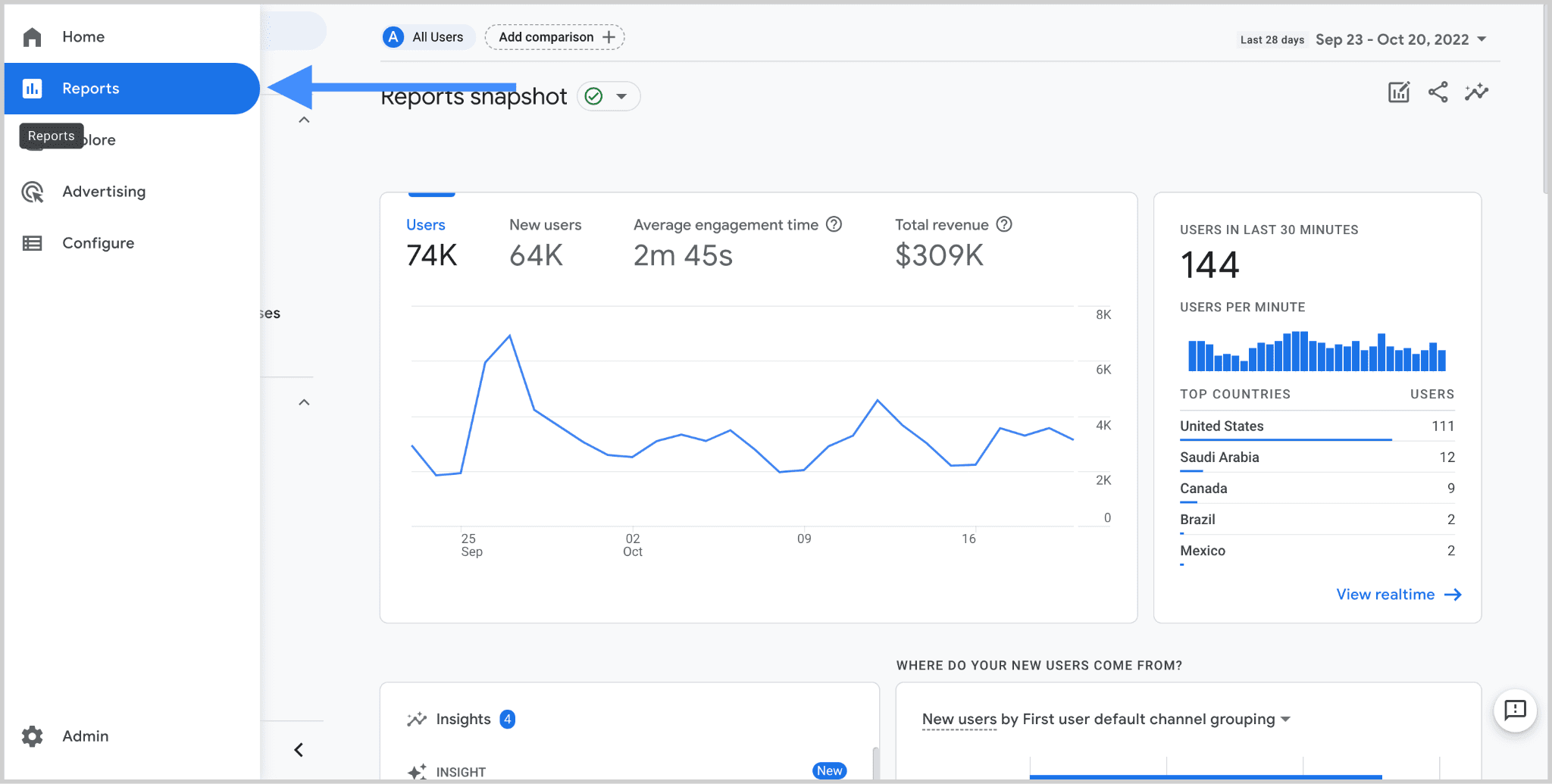
Monitor your affiliate marketing earnings to identify which products drive the most revenue and adjust your promotions accordingly.
Stay ahead by continually researching your niche and identifying new growth opportunities.
Tagging Your Products On Branded Content Posts
One of the most effective ways to secure brand partnerships on Instagram is by applying the Paid Partnership label.
This label lets your followers know you’re working with a brand and helps maintain transparency.
To access the Paid Partnership label, Instagram’s Brand Collabs Manager needs to approve you.
Once Instagram approves you, create branded content campaigns and add the Paid Partnership label to your posts.
This label builds trust with your followers and can help increase the reach of your branded content posts.
When you’re creating branded content posts, ensure you tag your products correctly.
It helps your followers find your products quickly and lets you track your sales and earn a commission.
Using Instagram’s Shopping feature, you can easily manage and customize product tags on branded content posts.
To do so, you must have a Facebook Business account, link it to your Instagram account, and set up your product catalog.
Once you set it up, tag your products on your branded content posts, which will show up as a product tag in the bottom left-hand corner of your post.
As an affiliate creator, it’s crucial to determine the fees for your branded content posts according to your potential affiliate commission earnings.
A good starting point is to calculate your average commission rate and apply that to the cost of the product.
For example, if your commission rate is 10%, and the product costs $100, your potential earnings are $10.
You can then use this number to negotiate your fees with the brand.
Remember to value your time, effort, and creativity when determining your fees.
While affiliate marketing and branded content are effective ways to monetize your online presence, they come with regulations and requirements.
As an affiliate creator, adhere to the Federal Trade Commission’s guidelines for disclosing affiliate partners.
Similarly, when creating branded content, comply with Instagram’s rules and regulations.
Some of these rules include:
- Using the Paid Partnership label
- Not using misleading information
- Not displaying prohibited content.
Understanding the requirements and features of affiliate and branded content helps you create high-quality content that meets the guidelines and resonates with your audience.
Using Affiliate Disclosures
An affiliate disclosure is a legal requirement.
You need to include it in your posts.
It should indicate that you will receive financial compensation for a product or service recommended in your content.
This disclosure assures that your followers get an unbiased review to rely on.
It applies to any affiliate relationship, including sponsored content, affiliate tags, and coupons.
Thus, it is crucial to be honest and transparent with your audience.
It helps to build trust and credibility.
Engaging with your audience is another way to build trust, especially on Facebook.
It helps to create a personal connection and bond between the seller and the buyer.
As a result, there’s a more significant influence on the audience’s purchasing decisions.
It is essential to reply to comments, share your followers’ content, and respond to messages promptly.
These actions build brand loyalty and make your audience feel included and heard.
Always promote your affiliate links with courtesy and respect.
Avoid sounding too pushy, as it can turn off your followers and affect your credibility.
Instead, focus on educating and providing value to your audience.
For example, you can create product tutorials or add recommendations to your blog posts.
Remember to hold off on the hard sell unless you genuinely believe in the product you are promoting.
Building Trust And Boosting Sales
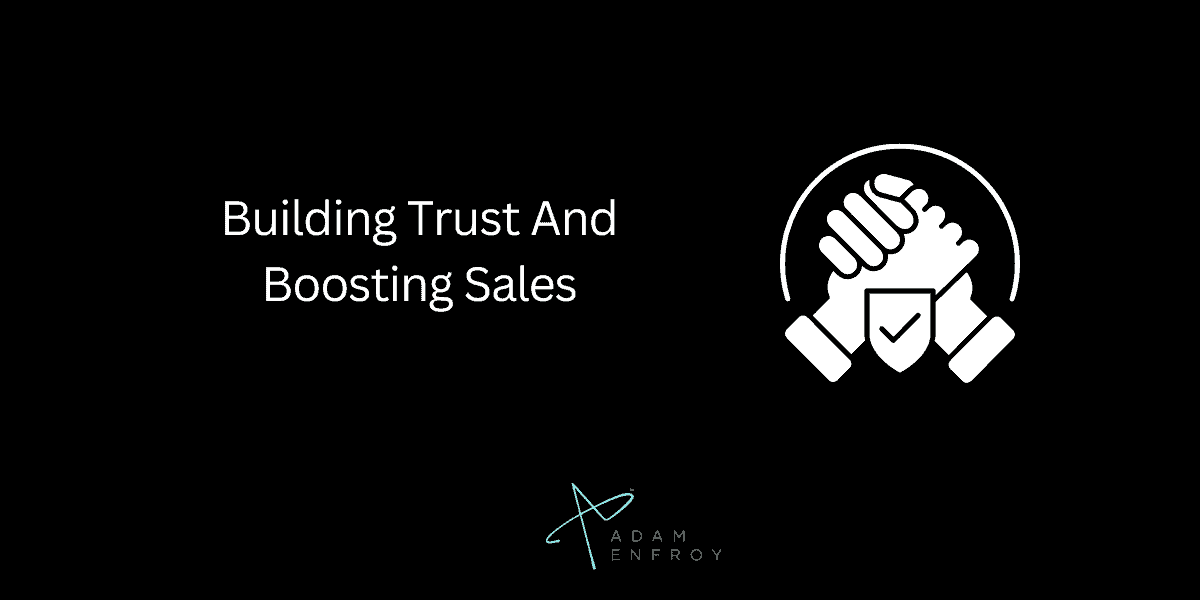
Gaining customer trust and boosting sales with your affiliate marketing content on Facebook is a long-term process.
It takes time to create meaningful relationships with your audience and establish yourself as an expert in the field.
Here are some essential tips to consider:
Follow The Guidelines
The Federal Trade Commission (FTC) has guidelines that regulate product endorsements.
To avoid misleading customers, you must disclose that you are using affiliate links and may earn commission from purchases via the links.
Use precise language, and make sure that your disclosure is visible.
It helps your audience trust you and understand your intentions.
Engage With Your Audience
Create a relationship with your audience that goes beyond sales.
Engage with your audience regularly by responding to comments and messages.
It helps you build trust and establish rapport.
You will also learn to tailor your content to your audience’s needs and preferences, keeping them engaged and returning for more.
Mix-Up Your Content
Don’t just post promotional content.
Offer informative posts that provide value to your audience.
They may not always buy what you pitch, but they may still share your content or click through to your site if they find your posts intriguing.
Providing a varied mix of promotional and informative content is essential.
Show That You Care
Your audience wants to feel you value them.
They want to know that you appreciate their engagement.
Responding to comments and messages is one way to show that you care.
However, fostering long-term relationships goes a step further.
Consider offering exclusive discounts or hosting giveaways for your loyal followers.
It keeps them engaged and earns new followers as they share the love.
Partner With Influencers
Partnering with influencers can also boost your sales and visibility.
Look for influencers in your niche who are authentic and well-respected.
Start with micro-influencers who have between 1,000 and 10,000 followers.
They are often more affordable, and their audience is more niche-specific, which means better engagement.
However, make sure that your content is deserving of promotion.
Deliver high-quality content that resonates with your audience and their followers.
Understanding How The Facebook Algorithm Works
Leveraging the algorithm for your marketing strategy can help you reach more potential customers and increase your return on investment.
In this ultimate guide for beginners, we provide a step-by-step guide for creating algorithm-friendly content that can drive referral traffic to your affiliate marketing business.
Following our guide, you can create Facebook posts that generate passive income and stay ahead of algorithm changes.
Developing Engaging Affiliate Marketing Content
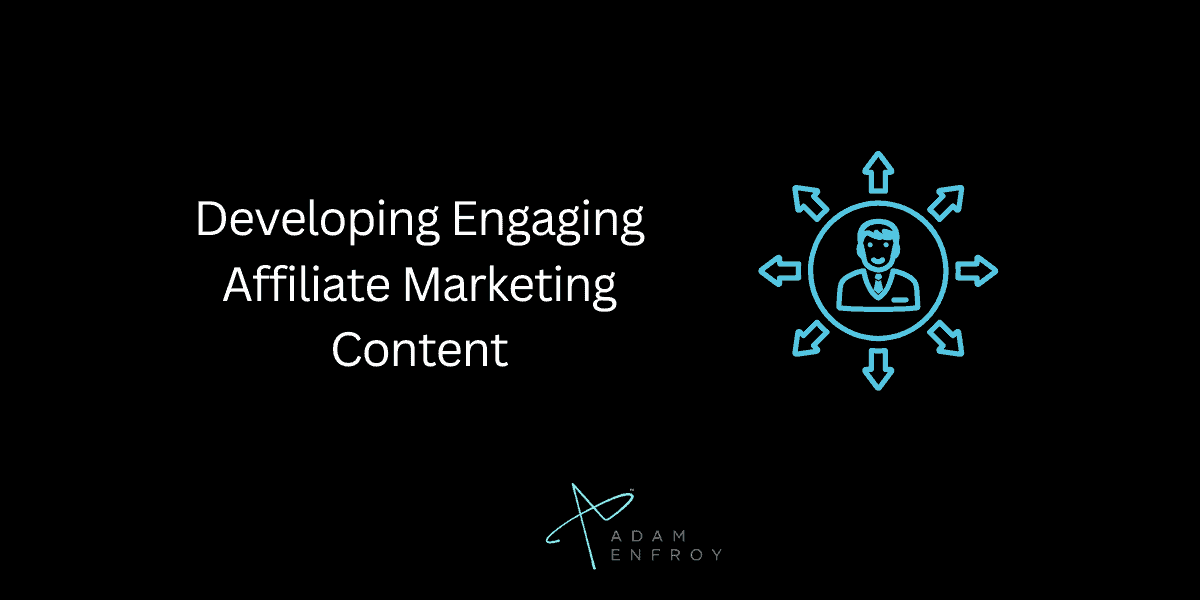
As an affiliate marketer, you must organize Facebook contests to engage with your fan base and grow your social network.
Once you have built a substantial following, you can start promoting affiliate products and offers through Amazon affiliate links or direct affiliate links to earn affiliate revenue.
To make money online through affiliate marketing, you require step-by-step planning and strategic execution.
Diversifying your marketing efforts to platforms like TikTok can also increase your reach and drive traffic to your Facebook profile.
Engaging visuals and user-generated content can help build trust and increase engagement with your audience.
By implementing these tactics, marketers can effectively leverage Facebook to drive affiliate revenue.
Facebook Ads For Affiliate Marketing
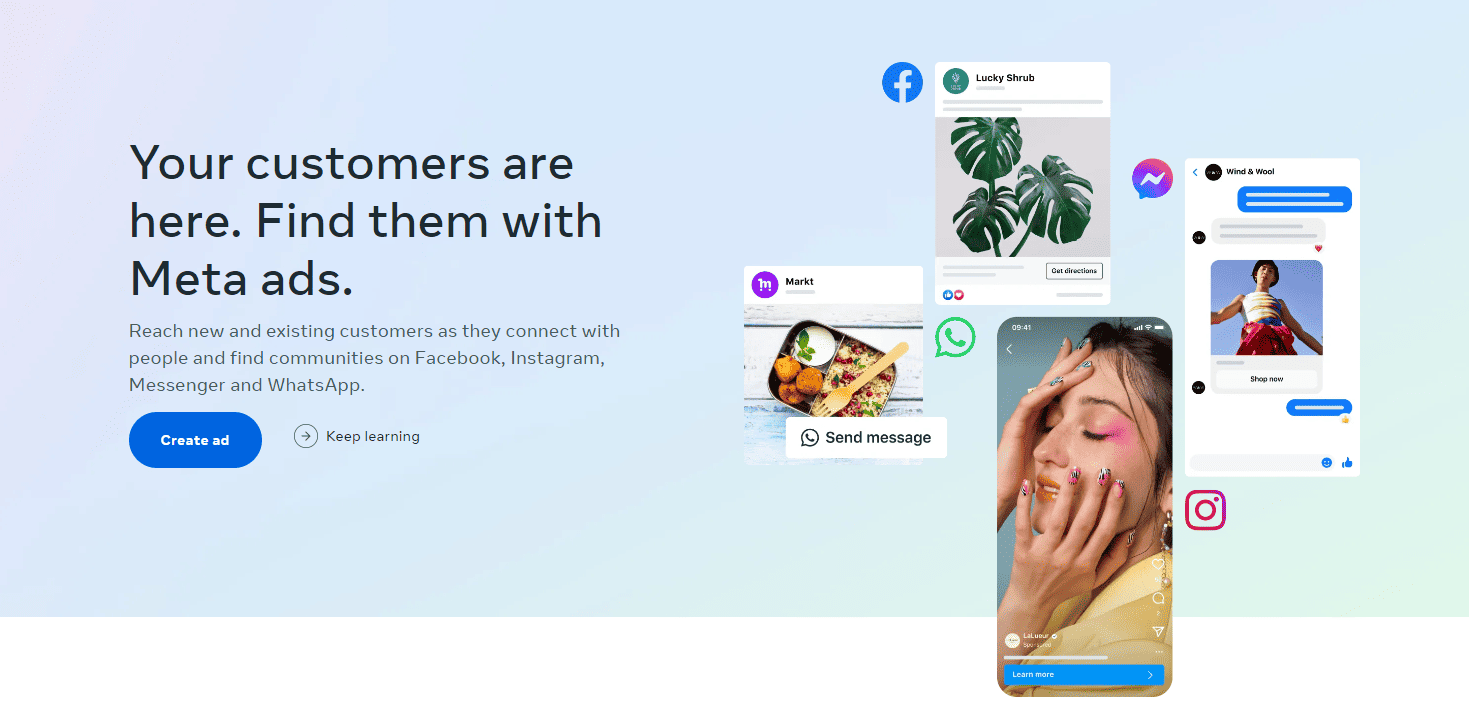
Using Facebook Ads Manager, individuals can use Facebook Ads to promote their affiliate business and maximize their return on investment.
However, including a disclaimer on the landing page and affiliate landing page for any ClickBank affiliate is essential.
Creating effective ad content and using A/B testing can help optimize Facebook Ads for better results.
Analyzing ad performance with Facebook Page Insights can also help improve ad performance and build an email list through opt-ins.
Overall, digital marketing through Facebook Ads is a valuable tool for affiliate marketing success.
Advanced Strategies For Affiliate Marketing
By partnering with influencers with a significant fan base, you can tap into their network of potential customers and increase your passive income.
Additionally, utilizing Facebook Stories and Live Features can enhance your marketing strategy and provide more engaging content for your followers.
Creating an engaging affiliate marketing webinar on Facebook can also attract new group members and provide an ultimate guide to your affiliate network.
Cross-promoting your affiliate links on multiple platforms can expand your retailer reach and referral potential.
Lastly, diversifying your affiliate marketing strategy on Facebook can generate more direct and Amazon affiliate links, leading to more money online.
With these tactics, affiliate marketing on Facebook can become a lucrative source of affiliate revenue.
Pros And Cons Of Facebook Affiliate Marketing
Let’s finally review the pros and cons of Facebook affiliate marketing.
Pros
Tap Into A Massive Audience Of Active Social Media Users
One of the most significant advantages of Facebook affiliate marketing is access to a massive audience of active social media users.
With over 2.8 billion active users, Facebook makes it easy for affiliate marketers to reach a global audience through targeted advertising.
Easy Entry With Minimal Requirements
Unlike traditional affiliate marketing, which requires significant web design and hosting investment, Facebook affiliate marketing requires very few upfront costs.
You only need a Facebook account, a promotional product, and a reliable internet connection.
No Need To Invest In A Domain Or Web Hosting
Facebook has created a platform that allows businesses to showcase their products and services without needing a website.
Affiliate marketers can leverage this platform to promote products without the need for hosting and maintenance costs associated with traditional websites.
Perfect For Digital Nomads
Affiliate marketing is popular among digital nomads who work while traveling.
Facebook affiliate marketing is an excellent option for these individuals since they can promote products on the go.
With Facebook’s mobile app, affiliate marketers can work from anywhere worldwide.
Keep Business Expenses Minimal
Facebook affiliate marketing helps businesses keep their expenses low.
With minimal startup costs, businesses can focus on generating traffic and increasing conversions.
Utilize Existing Pages/Groups For Brand Building
Another advantage of Facebook affiliate marketing is leveraging existing pages and groups for brand building.
Businesses can build communities of passionate followers so they can promote products.
Cons
Serious Affiliate Marketing On Facebook Requires Paid Ads
While you can do Facebook affiliate marketing without paid advertising, serious affiliate marketers must invest in Facebook ads to generate significant product traffic.
Facebook advertising can become expensive, and marketers must understand how to create a successful ad campaign.
Attracting Free Traffic Is A Challenge
Attracting free traffic to your products on Facebook can be challenging without paid advertising.
With many businesses promoting products, standing out and attracting organic traffic can take time and effort.
Generating Profits Through Facebook Campaigns Can Be Difficult
Generating profits through Facebook campaigns can take time and effort, even for experienced affiliate marketers.
Often, it takes time, effort, and significant investment to develop a successful Facebook affiliate campaign.
Beware Of One ToS Update That Could Jeopardize Your Business
Facebook’s ever-changing terms of service can make affiliate marketing on Facebook risky.
In 2018, Facebook updated its terms of service, banning all cryptocurrency-related ads.
These types of updates can suddenly and dramatically impact a business’s revenue.
Wrap Up.
Using Facebook to promote products can be an excellent way for businesses to reach many users quickly and cheaply.
However, there are risks associated with Facebook affiliate marketing.
Knowing the potential pitfalls can help marketers prepare for any potential issues.
With careful planning and research, affiliate marketing on Facebook can be a great way to drive traffic and increase business profits.
Further reading on AdamEnfroy.com: Ready to dive deeper into affiliate marketing?
Here are some resources to keep your momentum going.
This guide will help you find programs that can provide a steady flow of earnings.
If you’re outdoorsy or have an audience who loves the wilderness, the Bass Pro Affiliate Program could be an excellent match for you.
Fashionistas out there, don’t feel left out! There’s a whole world of high-paying fashion affiliate programs waiting for you.
Check out these top fashion affiliate programs to get started.
Lastly, if you’re into web services or have a tech-savvy audience, the GoDaddy Affiliate Program might be the perfect fit.
